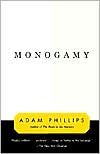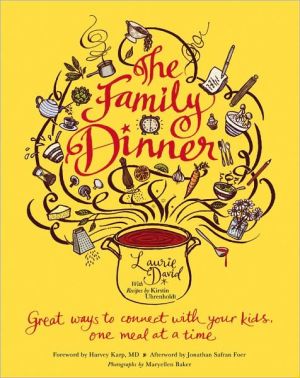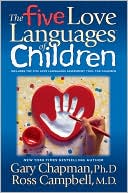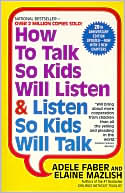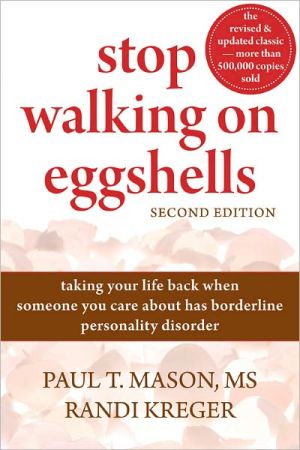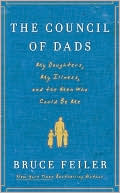Monogamy
In this sparkling, provocative collection of meditations on coupledom and its discontents, Adam Phillips manages to unsettle one of our most dearly held ideals, that of the monogamous couple, by speculating upon the impulses that most threaten it—boredom, desire, and the tempting idea that erotic fulfillment might lie elsewhere. With 121 brilliant aphorisms, the witty, erudite psychoanalyst who gave us On Kissing, Tickling, and Being Bored distills the urgent questions and knotty paradoxes...
Search in google:
All the present controversies about the family are really discussions about monogamy. About what keeps people together and why they should stay together. In this book of one hundred and twenty-one aphorisms, Adam Phillips asks why we all believe in monogamy, and why we find it so difficult to think about it. Everyone knows that most people, however much they may love their partner, are capable of loving and desiring more than one person at a time. It may be reassuring, but it is in fact very demanding (and often cruel) to assume that only one other person can give us what we want. At least in sexual matters, sharing seems to go deeply against the grain. Monogamy is so much taken for granted as the foundation of the family and of family values that, as with anything that seems essential, we are very wary of being critical of it. But as Phillips suggests, it is surely worth wondering why the faithful couple has such a hold on our imagination, and how it has come to be such an ideal. David Futrelle Adam Phillips is one of those writers who is best read slowly ù not because his writing is opaque (it isn't) but because it is so rich in implication. Phillips, in books such as his 1994 essay collection On Kissing, Tickling and Being Bored, is able to tease the most extraordinary insights from the seemingly mundane. Each essay is a finely wrought example of psychoanalytic thinking in practice. Each paragraph, sometimes each sentence, is enough to send the reader off on a new trajectory of thought, and it is almost impossible to emerge from one of his essays without some old patterns of thinking permanently unsettled. Phillips' new book, Monogamy, is unsettling in a different way. It is not his writing that perplexes so much as its peculiar form. The book consists of 121 miniature essays (if they can be called that), ranging in length from a single sentence to several paragraphs spread over a page or two ù a collection of psychoanalytic fortune cookie messages bound up in a book. The effect, alas, is more jarring than enlightening. Phillips is an epigrammatic writer, to be sure, but in his longer essays his flashes of insight are located securely within larger trains of thought. Here you merely get his conclusions, without any of the reasoning that led to them. It's like hearing the punchlines to 121 unknown jokes. "We have couples because it is impossible to hide alone," he writes, and you suspect he may be right ù but you want more. "Most infidelities aren't ugly, they just look as though they are," he tells us, and we wonder what on earth he could mean. Perhaps his essays are not so much punchlines as riddles. Perhaps in the months ahead I will compulsively come back to this book to ponder over Phillips' enigmatic epigrams. In the meantime, I am merely puzzled ù not only by Phillips but by his publishers. This is a book seemingly designed to defeat itself. It's too honest, too understanding of the impulses toward infidelity, to be an anniversary gift. Yet the title itself will be enough to frighten off the curious libertine. It's a pity, because it is clear there is something real at the heart of this book; too bad Phillips has decided to hide it from us. -- Salon
Excerpts from Monogamy:\ "Our survival at the very beginning of our lives involves us in something like monogamy. Our growing up involves us in something like infidelity (we challenge our parents, we betray them, we let them down). So when we think about monogamy we think about it as though we are still children and not adults as well. We don't know what adults think about monogamy."\ "A couple is a conspiracy in search of a crime. Sex is often the closest they can get."\ "You can be occasionally unfaithful, but you can't be occasionally monogamous. You can't be monogamous and unfaithful at the same time; you can't not be either. It's a double life each way. If you choose one, you choose the possibility of both. That's real commitment."\ "Each of our relationships is different, and we are different in each of them. That is what makes monogamy so perversely interesting."\ "If sex brought us into the family, it is also what breaks us out of the family. In other words, people leave home when what they have got to hide — their sexuality — either has to be hidden somewhere else, or when it is best shown somewhere else. If you've got nothing to hide, you've got no where to go. Which is one of the reasons why couples sometimes want to be totally honest with each other."
\ David FutrelleAdam Phillips is one of those writers who is best read slowly ù not because his writing is opaque (it isn't) but because it is so rich in implication. Phillips, in books such as his 1994 essay collection On Kissing, Tickling and Being Bored, is able to tease the most extraordinary insights from the seemingly mundane. Each essay is a finely wrought example of psychoanalytic thinking in practice. Each paragraph, sometimes each sentence, is enough to send the reader off on a new trajectory of thought, and it is almost impossible to emerge from one of his essays without some old patterns of thinking permanently unsettled.\ Phillips' new book, Monogamy, is unsettling in a different way. It is not his writing that perplexes so much as its peculiar form. The book consists of 121 miniature essays (if they can be called that), ranging in length from a single sentence to several paragraphs spread over a page or two ù a collection of psychoanalytic fortune cookie messages bound up in a book. The effect, alas, is more jarring than enlightening. Phillips is an epigrammatic writer, to be sure, but in his longer essays his flashes of insight are located securely within larger trains of thought. Here you merely get his conclusions, without any of the reasoning that led to them. It's like hearing the punchlines to 121 unknown jokes. "We have couples because it is impossible to hide alone," he writes, and you suspect he may be right ù but you want more. "Most infidelities aren't ugly, they just look as though they are," he tells us, and we wonder what on earth he could mean.\ Perhaps his essays are not so much punchlines as riddles. Perhaps in the months ahead I will compulsively come back to this book to ponder over Phillips' enigmatic epigrams. In the meantime, I am merely puzzled ù not only by Phillips but by his publishers. This is a book seemingly designed to defeat itself. It's too honest, too understanding of the impulses toward infidelity, to be an anniversary gift. Yet the title itself will be enough to frighten off the curious libertine. It's a pity, because it is clear there is something real at the heart of this book; too bad Phillips has decided to hide it from us. -- Salon\ \ \ \ \ \ Publishers Weekly\ - Publisher's Weekly\ Monogamy, suggests English psychoanalyst Phillips in this iconoclastic meditation, is-like infidelity-a compulsion rooted in our need for hope and reassurance. At its too-frequent worst, he notes, monogamous marriage degenerates into dulling routine and sexual boredom; at its best, it becomes a way of reducing our multiple, disparate selves to a manageable number, giving coherence and meaning to our lives and enabling us to grow. Full of irony and paradox, spiked with psychoanalytic insights, these 120 aphoristic mini-essays-most of them half a page or so in length-titillate but rarely satisfy. Many are as obscure as Zen koans or as pontifical as R.D. Laing. Phillips, whose previous books (On Flirtation; On Kissing, Tickling, and Being Bored) have won acclaim, tantalizingly explores how societal ideals of monogamy color our assumptions about love, sex, passion, self-pleasuring, jealousy, identity and relationships. (Jan.)\ \ \ Michele RobertsThe right reader, seduced by Monogamy's rye apercus, tickled by its insights, and ravished by its provocations, only has to lie back and enjoy. I wish this book all the eager and expert partners Don Juan ever dreamed of. -- The Independent On Sunday\ \
